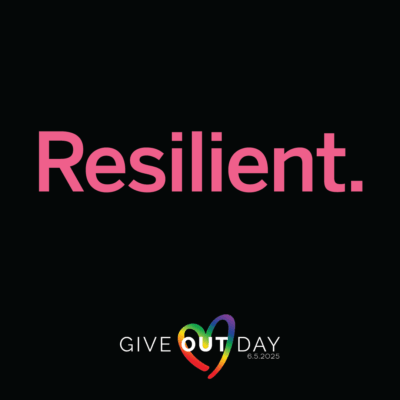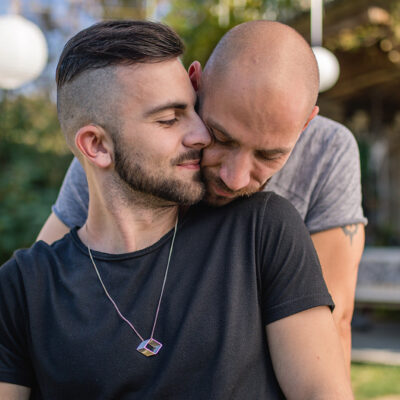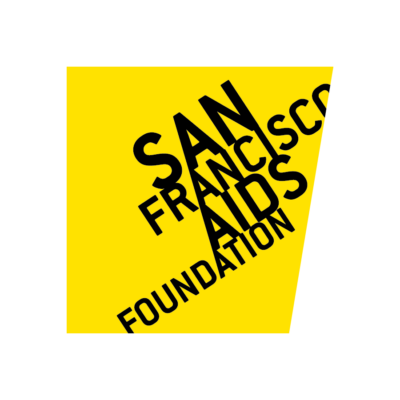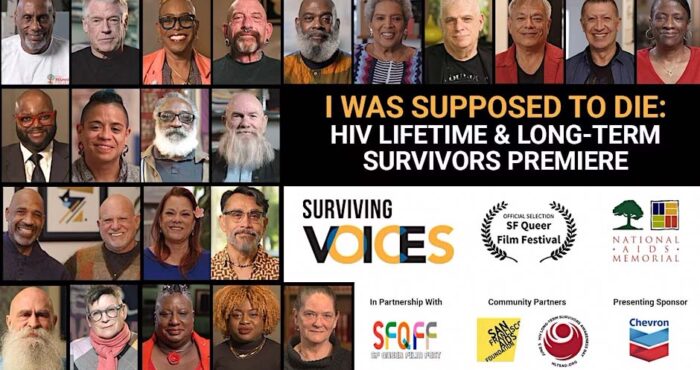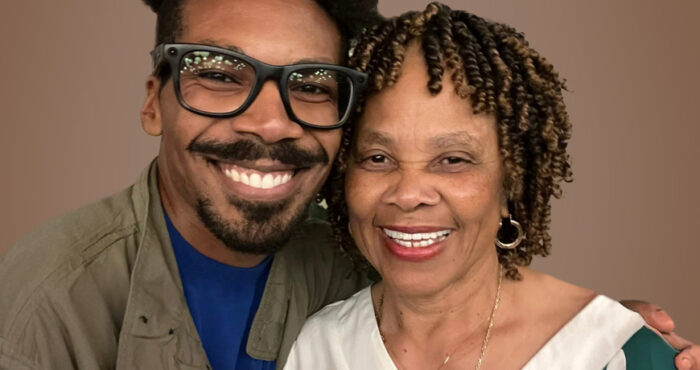Creating change, one person at a time
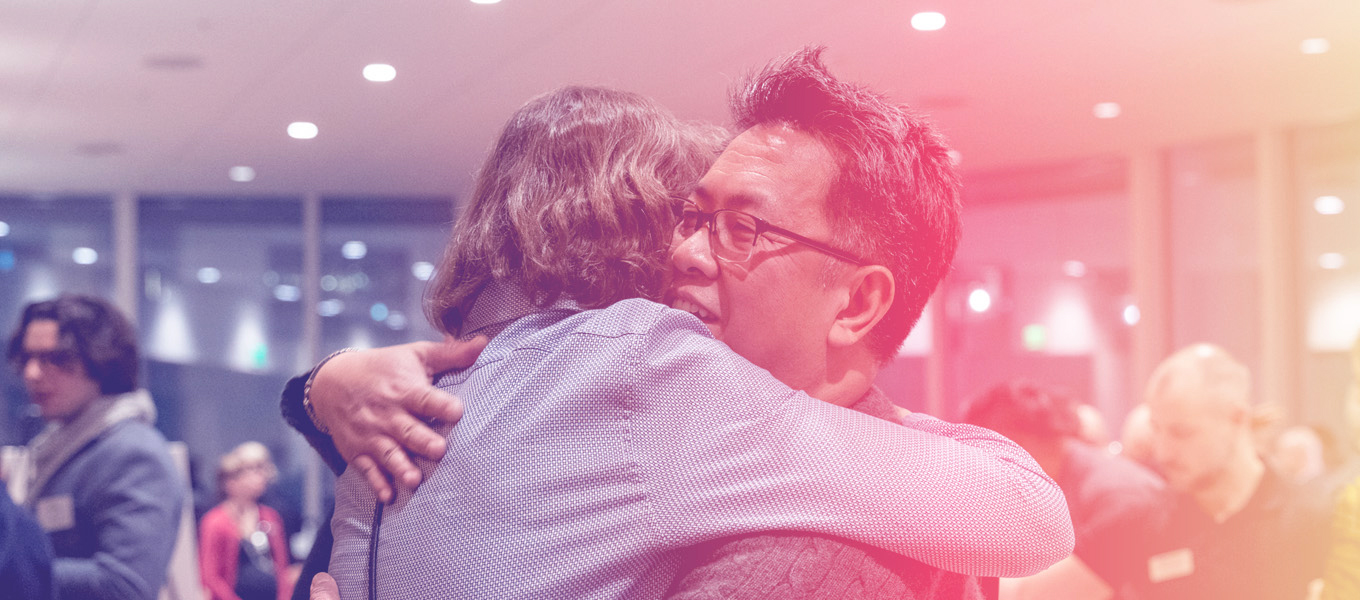
Every week, Natalie Mendez and Jorge Hernandez walk the streets in the Mission–by the BART station, near local SROs, and among groups of people congregating at markets and on sidewalks. They offer Narcan, an overdose reversal medication, and start conversations around an important but often overlooked topic: hepatitis C.
Natalie and Jorge are HCV wellness coordinators for SFAF’s Hepatitis C Wellness Program, an innovative program that reaches people who may have difficulty accessing traditional healthcare spaces and care. Many in the program are unhoused, and have a history or or are currently using substances. The program, based out of our Harm Reduction Center on 6th Street, welcomes people regardless of how they’re using substances, and offers easy-to-access support and care from trusted navigators, coordinators, and clinicians.
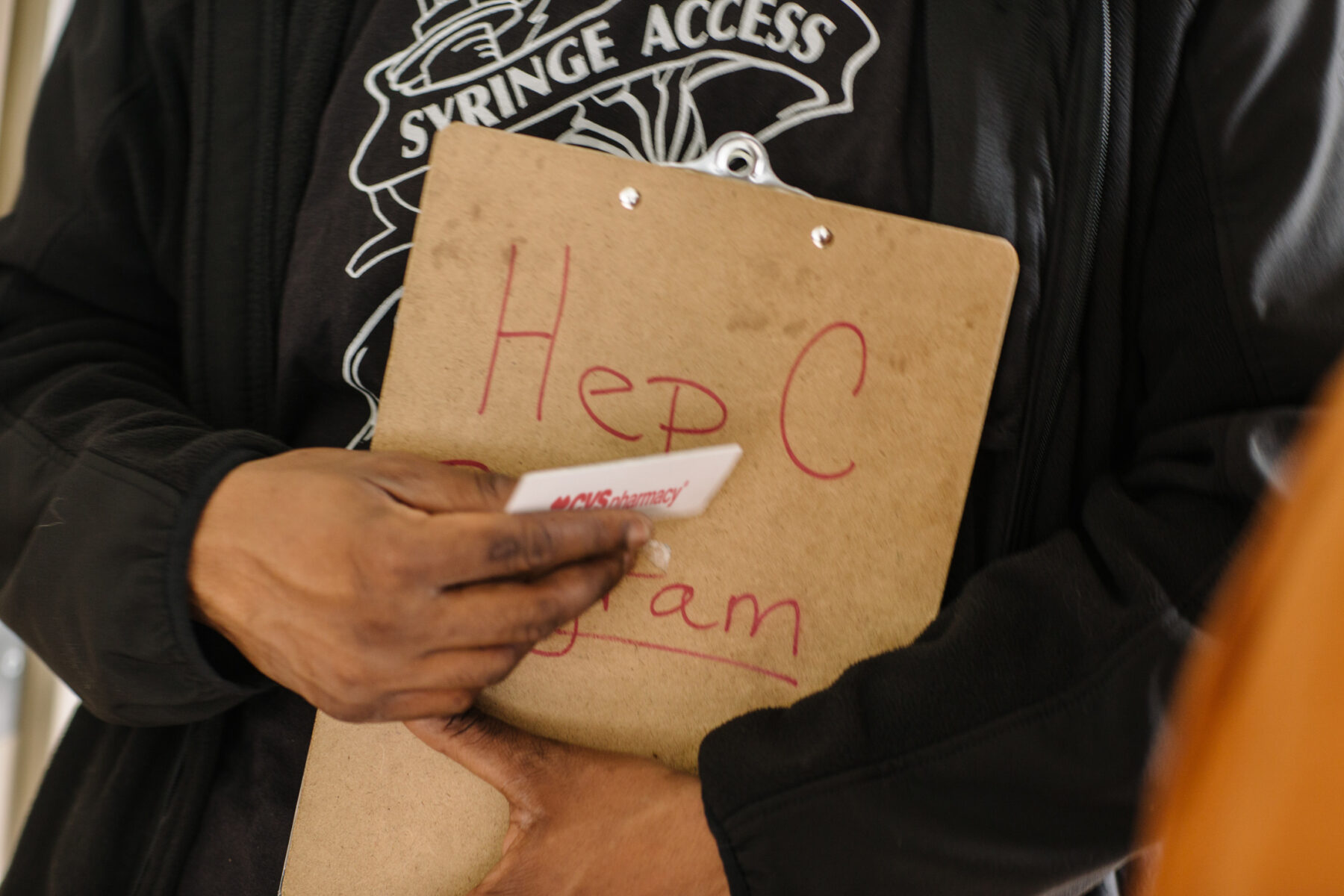
“We see people on a pretty regular basis during the time they’re being treated,” said Natalie. “It’s really helpful for people to have a trusted point of contact–someone they’re familiar with and know they’re going to see every time they come in. We also try to make it as easy as possible for people to get treated. That means we’ll hold their meds for them in lockers we have here [if people are unhoused or otherwise don’t have a place to store medications], and we offer ongoing support and reminders about when to come in. We help figure out ways to get people cured.”
Jorge explained that sometimes, team members go out in the community to search for participants who have missed appointments.
“Most of our participants live in SROs or they’re unhoused. If they don’t have a permanent address, and we can’t reach them by phone, we do outreach and look for them in places they might go. Doing that outreach helps us make sure that they have the support they need to get cured.”
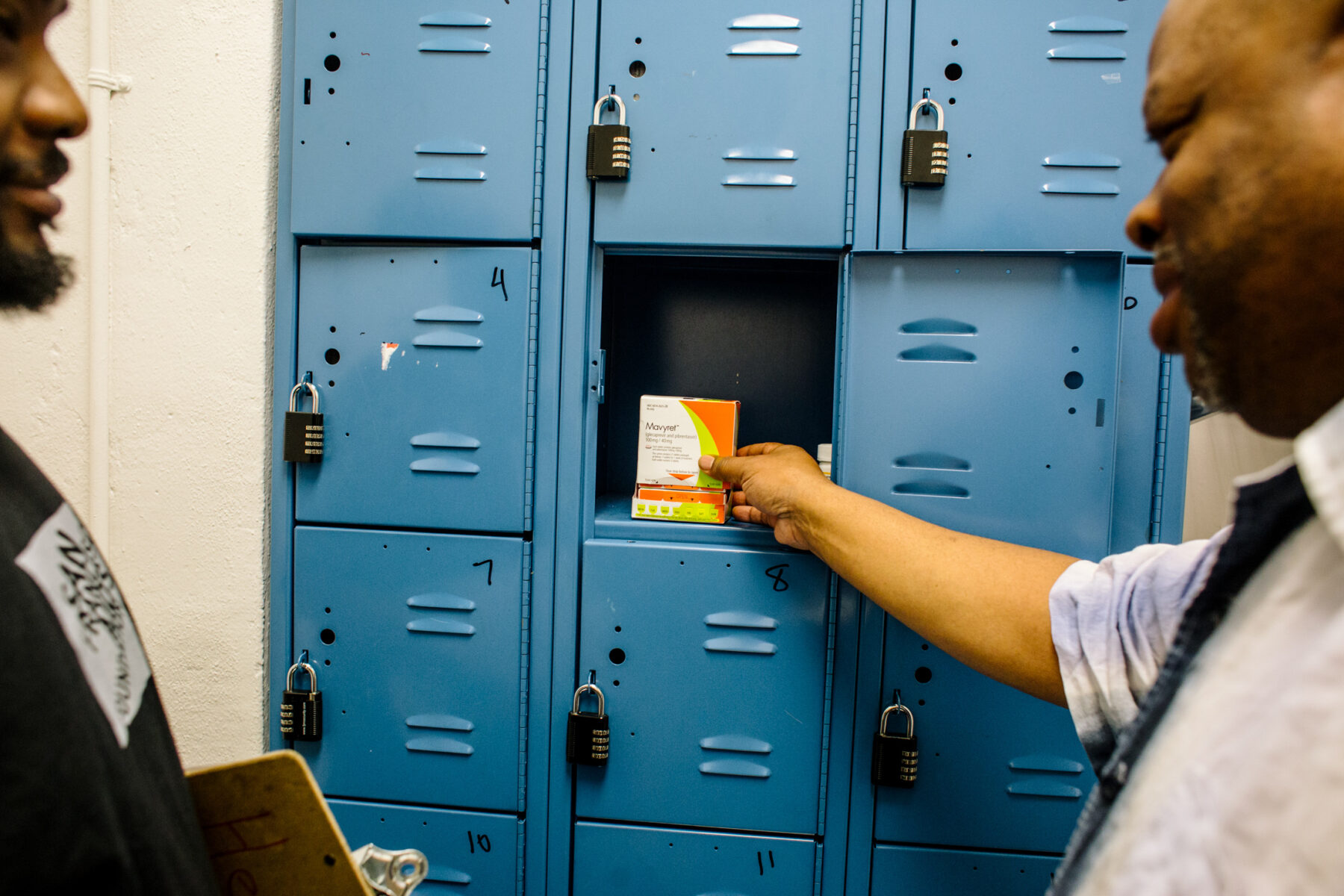
Hepatitis C is a serious infection that can be deadly if left untreated. It’s often contracted through blood-to-blood transmission which can occur through sharing injection equipment like syringes and cookers. Many people, though, aren’t aware that they’re living with hepatitis C, and so never receive treatment. Or, they aren’t aware of newer treatment options that can provide a cure in 8 to 12 weeks (older Interferon-based treatments were difficult and came with many side effects).
Natalie and Jorge see their clients–one person at a time–achieve a cure from hepatitis C, and know that every cure is a life improved.
“I love seeing it,” said Natalie. “They’re so happy when they get an SVR12 [cure] result. They’re like, ‘I finally got it!’ And they’re sharing the message to their peers. It’s just so great to see people happy about something they’ve accomplished.”
SFAF’s subsidy and benefits team members also see clients make positive changes–one step at a time.
The team, which provides services to people living with HIV, is one of the longest-lived programs at SFAF. Established in the early 1990s, the program provides rental subsidies to people living with HIV in San Francisco who meet income qualifications, as an eviction-prevention measure and a way to support people who may be on limited incomes, who may be aging with HIV, and who may be experiencing other health challenges. A benefits manager also helps people access benefits and insurance to help people pay for medications.
“Housing is healthcare,” said Jesus, subsidy program manager. “We help keep people housed–and this is so important in San Francisco. People who have housing have an easier time doing things like keep their medical appointments and remain adherent to medications. It’s so important for your entire wellbeing as a person.”
“There can be a lot of barriers for people who are trying to stabilize their medical care, medications, and insurance,” said Ellen Novogrodsky, the resource navigation manager with the team. “It can be very confusing, especially with plans like Medicare which change every year.”
Ellen is an expert at navigating insurance qualifications, application processes, and recertification for programs like Medicare, the AIDS Drug Assistance Program (ADAP), and other state-related programs that pay insurance premiums. She helps connect people to medical care, one phone call at a time.
“It can be really invaluable for some people to have that support,” she said. “We help participants navigate complex benefit systems.”
Subsidy coordinators on the team help clients maintain their housing with ongoing assessments and individualized assistance with housing and other psychosocial needs. They conduct regular check-ins during home visits, and do wellness checks by phone, email and in-person. The team also focuses on advocating on behalf of clients with landlords, property managers, and other service providers. Many are former medical case managers, and hold skills and knowledge about the landscape of social services in San Francisco which they rely on in their interactions with clients.
“With many years of experience providing medical case management for people living with HIV and AIDS, we help address many psychosocial issues, ranging from immigration, benefits, legal, and more–in addition to housing,” said Malou. “And all of our services are delivered through a compassionate and harm reduction lens.”
Team members help clients find their way out of difficult situations, and recounted instances when they were able to assist clients in finding ways to pay back rent, take advantage of emergency rent programs, cover moving costs, and even help a client reconnect their phone line after a storm.
“We do see positive changes in the lives of our clients, and we’re glad we can be here to play a role in that,” said Malou.


